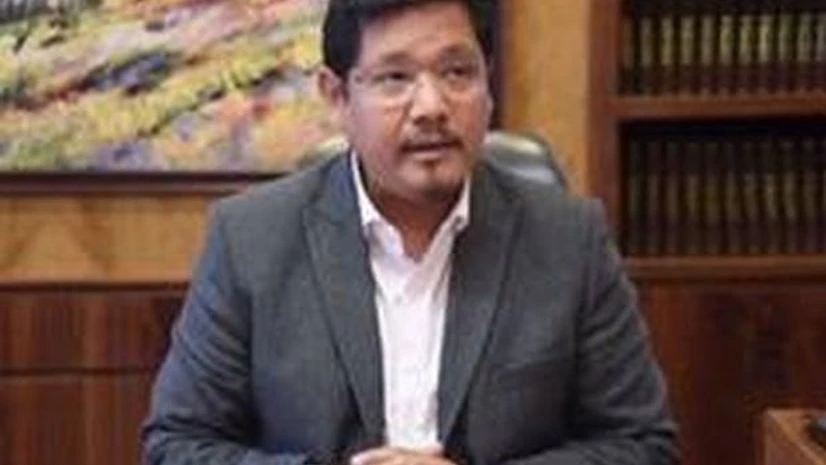Meghalaya Chief Minister Conrad Sangma launched the shared school bus system, prime tourism vehicles and agriculture response vehicle scheme.
The chief minister on Wednesday flagged off shared school buses and hoped that it will help to minimise traffic congestion in Shillong.
"A bus ride today with our students in the launch of the Shared School Bus System which we are hopeful to minimize traffic congestion & create a mode shift in school travel from private four-wheelers to school buses in Shillong city," Sangma tweeted on Wednesday.
The buses are part of Sustainable Transport and Efficient Mobility Society (STEMS) programme focussed on mobility and overall transportation to decongest the city.
The chief minister said the prime tourist vehicles are a step to improve the overall tourism sector and to provide good transportation services to tourists and at the same time provide job opportunities to our entrepreneurs.
The Meghalaya government is providing financial assistance to tourism entrepreneurs to purchase premium tourist vehicles.
More From This Section
"This is the start of promoting High Value Tourism' entrepreneurship in our state and with time, more assistance will be provided to enhance the tourism entrepreneurship ecosystem," the CM tweeted.
On the Prime Agriculture Response Vehicles, the chief minister said the vehicles are given to farmers associations and groups so that the farmers will have a strong transportation network which will ultimately help the farmers.
"The introduction of the Meghalaya Agriculture Response Vehicle Scheme will mitigate the amount spent on transportation of agriculture produce by our farmers by giving them financial assistance for procurement of the Agriculture Response Vehicles' under the scheme," he tweeted.
"This initiative will provide a boost to the rural entrepreneurship ecosystem in the state," the CM added.
STEMS CEO Isawanda Laloo said the fleet of buses that is being introduced shall be used by multiple schools for school trips and the same buses maybe used by employees to commute to offices and on holidays or weekends by tourists thus creating more efficiency and ensuring that the operations of the buses are sustainable.
The buses are GPS enabled for real time tracking with a passenger information system and LED screens to show the routes. The NIC will develop a mobile application and website for tracking and booking of the buses while the transport department will be roped in for operations and maintenance of the buses.
The drivers and the caretakers of the buses will be trained by the Meghalaya Skills Development Society.
(Only the headline and picture of this report may have been reworked by the Business Standard staff; the rest of the content is auto-generated from a syndicated feed.)

)
